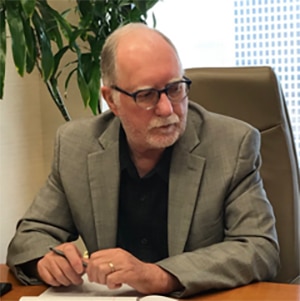“It was the best of times, it was the worst of times, it was an age of wisdom, it was an age of foolishness.” — Charles Dickens, “A Tales of Two Cities”
Looking back on the developments in legal marketing over the past year, we saw some important advances, as well as some, let’s say, interesting quests to get new clients. Here’s my list of the top eight legal marketing stories of the year.
It Was an Age of Foolishness …
8. Hundreds of state and local bar associations operate nonprofit lawyer referral services, matching hundreds of thousands of clients to lawyers each year. They are public-spirited and generally well-trusted programs. That’s why it was surprising to many when a Kentucky lawyer started fake bar associations, such as the Shelby County Bar Association, seemingly for the purpose of operating bar-sponsored referral services that would route cases to him. According to the president of the real bar association that encompasses Shelby County, “It looks bad and it smells bad.” Doesn’t look like the plan went very far. A Google search doesn’t result in any links to a Shelby County Bar Association in Kentucky.
7. Celebrity endorsements have been part of the lawyer advertising landscape for decades. Spokespersons have included William Shatner and Robert Vaughn — guys who seem like they could be lawyers. But in 2018, a little-known attorney-client matching service hired a frequent user of legal services, Lindsay Lohan, as its spokesperson. The service’s owners indicated they had a list of 100 celebrity candidates and that Lohan was always at the top. It will be interesting to see if anyone else goes the route of celebrity endorsers who themselves need lawyers often.
6. There are few things about lawyers that people loathe more than ambulance chasing. In-person solicitations are unethical in such circumstances in every state. But now, lawyers are using the tech tool of geofencing to reach those in emergency rooms via text messages. Is it loathsome? Most would say it is. Is it ethical? Hard to tell, but as a written communication, it may well be. Is it a violation of consumer protection statutes? The jury is still out on that. Perhaps the biggest question of all is whether it is an effective marketing tool. We will have to keep an eye out for that as well.
It Was an Age of Wisdom …
5. This may seem a bit remote to the concept of legal marketing, but I think it is an important development. This year the MacArthur Foundation selected Professor Rebecca Sandefur as one of the recipients of its Genius Grants. Sandefur is a social scientist who conducts research on civil legal needs and access to justice. Her work has been so powerful, it sometimes almost single-handedly changes the narrative of those advancing better access. Her recent work has concluded that people too often do not know that their problems have legal solutions, and, therefore, the legal profession needs a greater focus on its outreach, including broader advertising. The MacArthur Foundation’s recognition of Sandefur’s work is more broadly an acknowledgment of the movement dedicated to improving access to legal services, and at its core that involves legal marketing.
4. Staying with the notion that improving access to legal services integrally involves legal marketing, late in 2017, the Institute for the Advancement of the American Legal System (IAALS) and the American Bar Association (ABA) Standing Committee on the Delivery of Legal Services collaborated to produce an international conference on unbundled legal services. In August, IAALS issued an exceptional conference report, which sets out direction on how all stakeholders, including practitioners and bar associations, can embrace and advance unbundled legal services. Earlier ABA research demonstrated that people are not generally aware of the option to obtain unbundled services, but once they become aware, about two-thirds of those surveyed indicated they were more likely to engage a lawyer who provides this option.
3. A few years ago, the innovative online lawyer support entity Avvo created a fixed-fee option for consumers, known as Avvo Legal Services. This became characterized as an attorney-client matching service by the several states that issued ethics opinions finding pockets of noncompliance within the program’s structure. Early in 2018, Avvo was acquired by Internet Brands and by the middle of the year, Internet Brands announced it was discontinuing Avvo Legal Services. While this was unfolding, the Virginia Supreme Court issued proposed Legal Ethics Opinions (LEO) 1885, a comprehensive interpretation of the application of the ethics rules to the Avvo model. The court signed off on LEO 1885 in November. Keeping in mind that ethics opinions are merely applications of the rules to a fact pattern, in this case a delivery model, LEO 1885 is a road map to change the rules. See No. 2!
2. Illinois has a voluntary state bar. It is not an integrated bar. The arm of its Supreme Court responsible for disciplinary matters is the Attorney Registration and Disciplinary Commission (ARDC). In late spring, the ARDC issued an extraordinary report, comprehensively analyzing Client-Lawyer Matching Services and their ethics issues around the country. As its conclusion, the ARDC set out potential rule changes centering on the concept of a safe harbor. Under this rule change, lawyers would not be disciplined for their participation in matching services that meet a series of consumer-protection conditions. As a recent article says, the push for change is “inching forward.”
1. The top development in legal marketing in 2018 was the amendments to the ABA Model Rules of Professional Conduct that address lawyer advertising and solicitation. Years in the making and following the lead of the Association of Professional Responsibility Lawyers, the ABA House of Delegates amended the rules in August in a way that provides a greater focus on the prohibition against false or misleading communications, with less concern for some of the more nuanced provisions. The changes seem particularly beneficial for firms providing corporate legal services, as the rules now permit in-person solicitations for those who routinely use legal services for business purposes and permit a lawyer to give a nominal gift to someone who recommends the lawyer’s services. While some suggested that the changes do not go far enough, few are critical of the advances they make. Lawyers need to keep in mind, nevertheless, the changes do not come into force and effect unless and until they are adopted by the states.
What Should We Look Forward to in 2019?
After having adopted new rules in 2018, California has launched the Task Force on Access Through Innovation of Legal Services. To watch for: Will it include recommendations to enable the flow of capital to law firms and somehow permit those who are not lawyers to have a place at the table? Will other states advance similar task forces?
ABA Formal Opinion 484, issued in November, concluded that a client could obtain funding from a lender in which the lawyer has an ownership interest under certain circumstances. Will law firms move further into the client-lender space to better enable potential clients to pursue costly matters?
And how will artificial intelligence advance in the realm of client development — more bots for intake or legal checkups? What about online games that help people understand when their problems have legal solutions?
Let’s check back next year and hope that it will be only the best of times.
Illustration ©iStockPhoto.com
Subscribe to Attorney at Work
Get really good ideas every day for your law practice: Subscribe to the Daily Dispatch (it’s free). Follow us on Twitter @attnyatwork.























